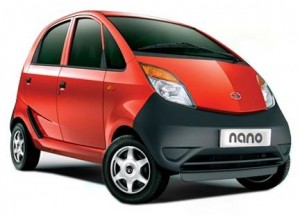Last class we were intoduced to the TATA nano, a car worth less than US$3000 (new) when it was first introduced into the market. This car lacks in all aspects of safety (no airbags or sideview mirror) and comfort. A bold marketing move to get the mid-lower class population of India off mopeds and into cars. To what extent could this decision be considered an ethical business strategy?
The Nano received a 0-star NCAP Safety rating from ADAC, meaning it didn’t even meet UN basic safety requirements. This puts the driver in grave danger if they were to drive at over 40miles an hour.
Yet the Nano is not the only car on the Indian market that follows this level of safety:
…five models [went] through crash tests, including the Suzuki-Maruti Alto 800, the Tata Nano, Ford Figo, Hyundai i10 and Volkswagen Polo.
-BBC News
Although these cars lack in what we in the western world would now consider standard for safety, they do provide a better alternative to what some commuters are willing to endure on the streets of India.
So to conclude there is an extent to which TATA Group’s Vehicles put their consumers in danger, but they are not alone and should not be singled out as a societal menace. In fact, considering that other (similar) vehicles are being charged for more (up to US$8000), TATA Group are actually doing a service for the people of India.
References:
http://www.theguardian.com/commentisfree/2014/feb/03/tata-nano-car-cheap-poor-safety-rating
http://www.bbc.com/news/world-asia-india-25974754
More Reading on TATA Group:
http://www.tata.com/


